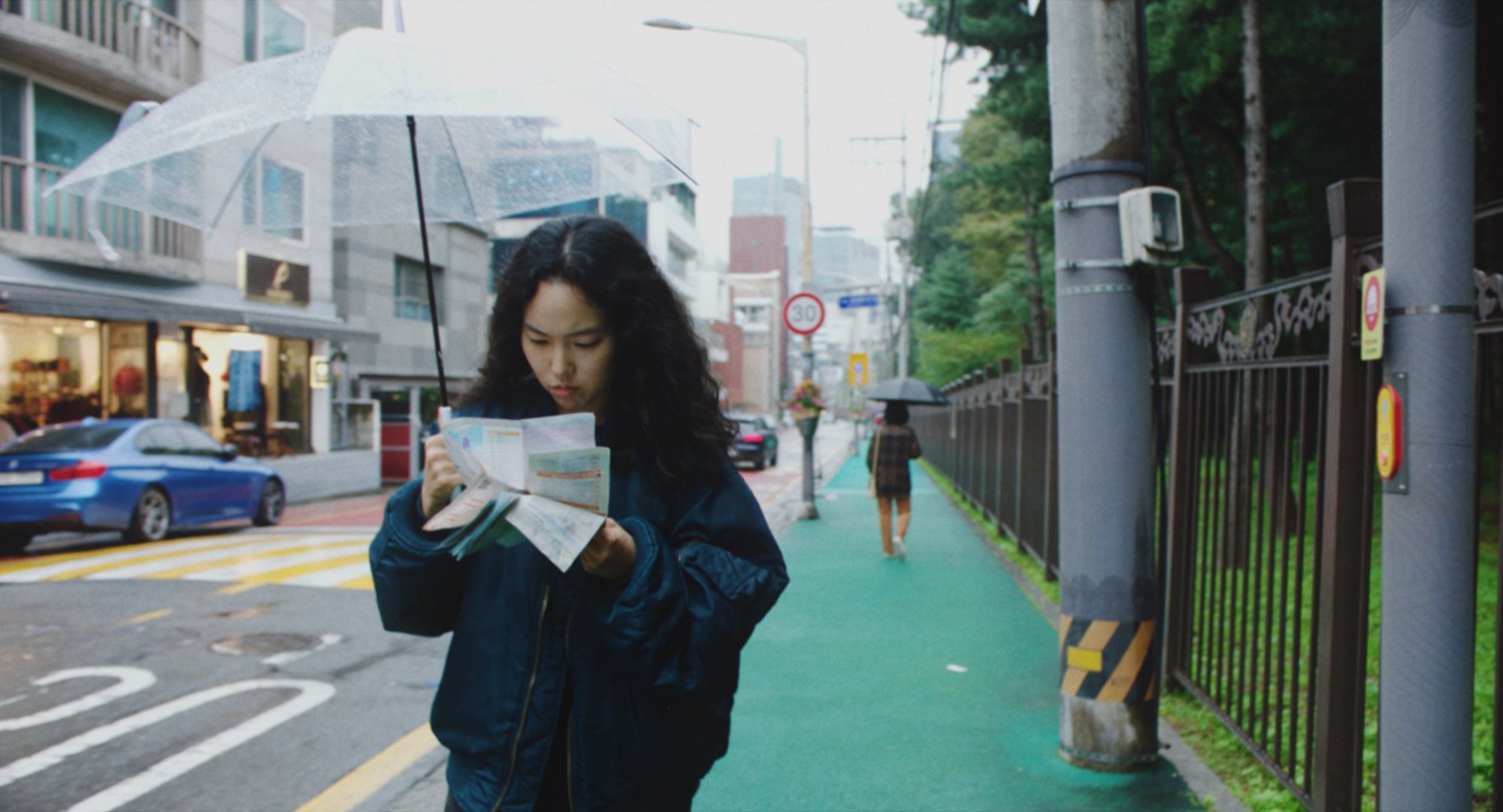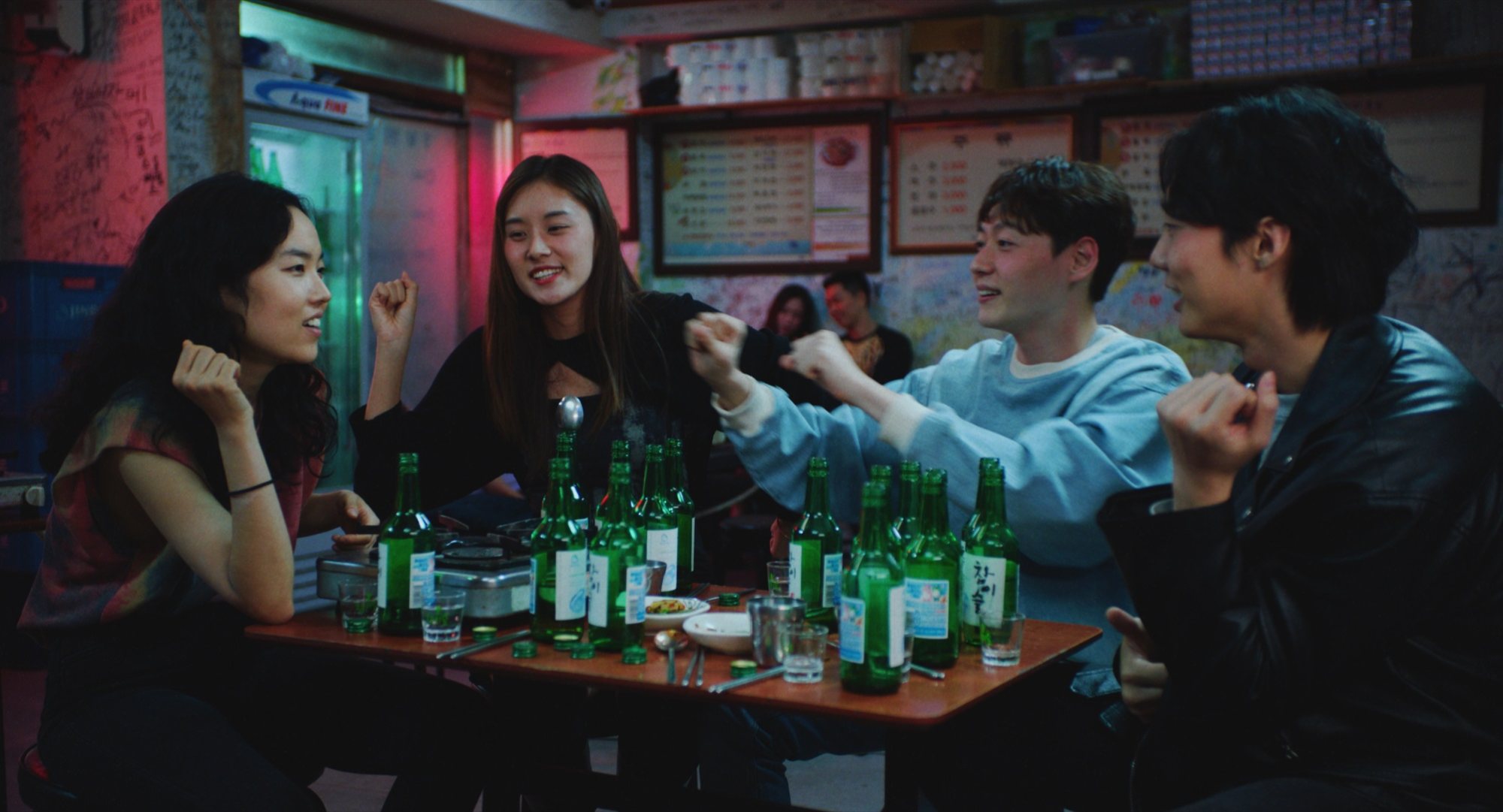
Return to Seoul director Davy Chou on ‘cultures clashing’ in his hit movie, working with non-professional actors and being inspired by Tarantino, Scorsese
- Cambodian-French director Davy Chou explains why his award-winning film about a Korean-born French adoptee reunited with her parents has links to his own life
- The filmmaker opens up about working with ‘amazing’ first-time actress Park Ji-min, the influence the Hollywood auteurs had on his soundtrack choice, and more
At a time when diversity and representation are at the forefront of mainstream cinema, Cambodian-French filmmaker Davy Chou has come up with Return to Seoul, a probing, unpredictable exploration of identity and self-affirmation.
The film stars first-time actress Park Ji-min as a Korean adoptee, raised in France, who unexpectedly finds herself in the South Korean capital after her flight is diverted. On a whim, she attempts to track down her birth parents, and the decision irrevocably changes the lives of all concerned.
With the film opening in Hong Kong cinemas this week, Chou spoke to the Post about the origins of the project, how it connects with his own story, and his experiences collaborating with non-professional actors.
“I’m not Korean, I’m not adopted, and I’m not a woman,” Chou says, “but I’m related to this story in many ways.”
Born in France in 1983 to Cambodian parents, Chou first travelled to Cambodia when he was 25, and now lives there with his partner of 13 years and their newborn son. He first came upon the idea for Return to Seoul while attending the Busan International Film Festival in South Korea in 2011.

Chou observed that the experience was far from the heartwarming reunion often depicted in films.
“It was not much fun,” he says. “It was very painful, brutal and complex, but I think that’s what life is.

“So I was interested in creating a narrative that would take us by surprise. That’s how you can be shocked emotionally, and how maybe you can also open yourself to a different perspective.”
Their meeting at first proves difficult and emotionally unsatisfying. However, it awakens a desire within Freddie to create a life for herself in this unfamiliar society.

“For me, the film is really about different worlds confronting themselves,” Chou says, “the chemical reaction when they have nothing to connect, and what that friction creates in terms of emotion, poetry and narration.”
Adding another layer onto his story, Chou chose to cast Park, an artist with no previous acting experience, in the lead role.
The director describes their one-month rehearsal period in Paris as “one of the most challenging yet fruitful experiences” of his career.
There is this belief that music should be a canvas behind the images, and it’s vulgar to put it up front, but I always like Scorsese and Tarantino’s iconic use of music.
“She challenged me a lot about different details of the script, to do with the question of representation of an Asian female character, representations of femininity, her acceptance or resistance to a certain patriarchy.
“I had to switch from believing that I can solve problems through intellectual debate and step back, adapt and build a character together by listening a lot to her,” Chou says.
Freddie’s evolution over the course of the film is both extreme and entirely convincing, in large part thanks to Park’s bewitching and enigmatic performance.

As the script persistently wrong-foots the audience, defying them to predict where Freddie will be from chapter to chapter, Park holds the audience’s attention, occasionally in a state of curious confusion.
“She did an amazing job,” Chou enthuses about the actress. “We’re shooting chronologically, to help her shape the character, and on the first day of each part her energy was different, and she even looked like a different person.
“Her embodiment of the character is key to how those transformations will be accepted by the audience, because she looks different but it’s still her.”

Structured in three parts spanning several years, the film sees Freddie undergo a profound evolution, but as Chou is quick to point out, real life is often stranger than fiction.
“Many aspects of the film are biographically true. For example, the main character becoming an arms dealer, which sounds crazy but that’s what [my friend] did for 10 years.
“I was loath to go there, I thought it was too much, like it was becoming a James Bond movie, but reality is like that.”
The 12 best Asian films of 2022: RRR, Decision to Leave, Plan 75 and more
“People have become shy about the use of music, especially in art-house and independent films. There is this belief that music should be a canvas behind the images, and it’s vulgar to put it up front, but I always like Scorsese and Tarantino’s iconic use of music. It’s so liberating.”
Return to Seoul features an immersive score from French composers Jérémie Arcache and Christophe Musset, as well as a diverse selection of tunes ranging from techno to traditional Korean folk songs.

“For me this evokes something very specific, going to Cambodia and not knowing anything about the culture of my parents, in terms of history and traditions, and listening to the old Cambodian music. It’s a very weird, schizophrenic feeling and I wanted to play with that during Freddie’s first steps in Korea.”
As an extension to the relationship between Freddie and the soundtrack to her adventure, the film includes a stand-out dance sequence in a popular underground vinyl bar. This is an unchoreographed moment of raw expressiveness that came directly from Park’s own unique interpretation of the moment.
“I like to do a lot of preparation with my non-professional actors, trust exercises, and sometimes we dance together. That’s how I discovered that [Park] was an amazing dancer, with this very strange style that’s very tense and energetic, but extremely moving for me,” Chou says.

“I can see a lot of pain and anger slowly liberating itself, and that’s basically what the scene was about. The character has been holding things in, shielding herself from her own feelings, and you can feel the anger.
“But then there is this explosion of joy. It’s still very brutal, but there are smiles … For me it was really the moment where you see the joy of living, despite all this pressure.”
For all the film’s heavy subject matter, and Chou’s insistence that Return to Seoul resist the established clichés or predictable outcomes of other adoption dramas, he is still committed to showing his audience a good time.

“The film is very sad, tragic, cruel and frustrating for the characters, so there is a lot of negative emotion, but I also wanted it to be very lively, funny, and surprising.
“As much as possible, I tried to inject little traces of humour to the film that also come from the awkwardness of two different cultures clashing.”

